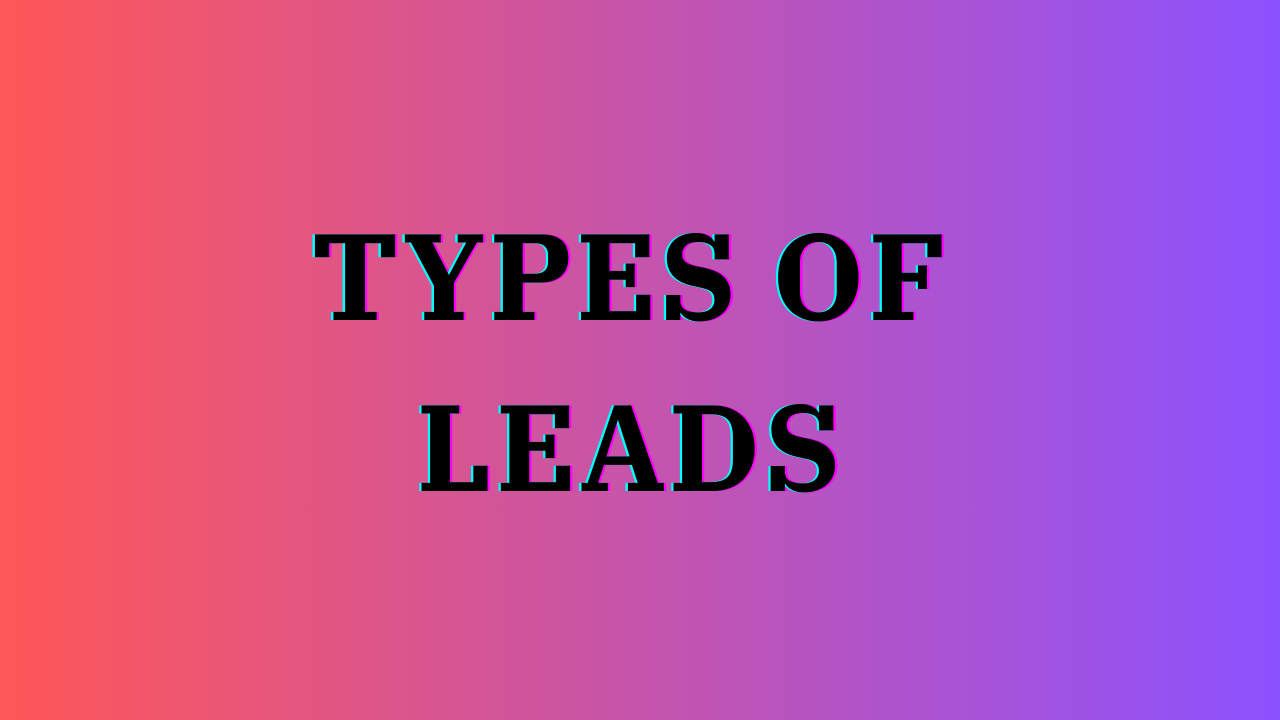
There are various types of leads, and each has unique qualities. Additionally, by going further, we can identify “gray areas” in terms of determining what constitutes a good lead and what does not. We will explore the various lead types and attempt to provide some more information below.
Based on several variables, such as the degree of involvement, the source, and the stage in the sales funnel, leads can be divided into distinct kinds. Here are a few typical types of leads:
1. Marketing Qualified Leads (MQLs):
- leads generated by marketing campaigns that have expressed interest in a product or service. They might have completed forms, interacted with marketing materials, or engaged with content.
2-Sales Qualified Leads (SQLs):
- leads that the sales team has recognized as possible clients. They are more likely to become paying clients because they have generally exhibited a higher level of interest.
3-Cold Leads:
- These people may not be actively looking for your services and have expressed only a passing interest in them. It takes more work to nurture and convert cold leads.
4-Warm Leads:
- Warm leads have shown a greater degree of interest, whether through frequent engagement with your content, downloading a resource, or attending a webinar. They have a higher chance of becoming customers.
5-Hot Leads:
- People who are actively looking for your services and are prepared to make a decision are known as hot leads. Specific requests for bids, direct inquiries, or recommendations are common ways to obtain these leads.
6-Inbound Leads:
- leads that a company receives via its numerous inbound marketing initiatives, including social media, SEO, content marketing, and other internet channels.
7-Outbound Leads:
- leads that the company purposefully seeks out using outbound marketing techniques like cold phoning, email outreach, or targeted advertisements.
8: Online Leads:
- Online leads come from online sources, such as social media, internet forms, online advertising, and other digital marketing techniques.
9-Offline Leads:
- leads obtained using conventional offline methods, like phone calls, trade exhibits, events, and direct mail.
10-Product-Specific Leads:
- leads indicating interest in a specific good or service that a company provides. These leads might have expressed interest in a certain function or service.
11-Service-Specific Leads:
- leads that are considering a particular service that a company offers. They might have expressed interest in a specific product or service.
12-Referral Leads:
- leads that the company receives through recommendations from current clients, partners, or other relationships.
13: Social Media Leads:
- leads produced by social media networks. These people might have interacted with the company’s social media posts or clicked on advertisements.
14-Event Leads:
- leads obtained by attending or organizing conferences, trade exhibitions, webinars, or other events.
15-Qualified Leads:
- leads that fit certain requirements and are likely to become clients. These leads fit the target client profile in terms of attributes.
Businesses must recognize the various kinds of leads and adjust their lead nurturing and conversion tactics accordingly. Different leads are at different stages of readiness to buy, and organizations can better prioritize and customize their interactions by identifying these differences.
